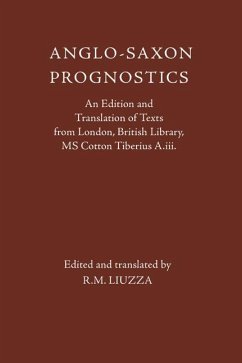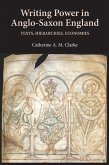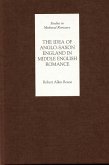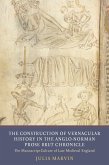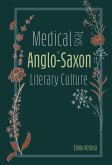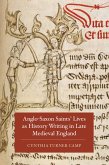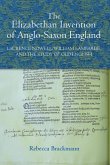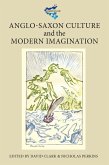Edition and translation of prognostic guides and calendars, intended as an effort to foretell the future.
Winner of the Beatrice White Prize, 2013.
Medieval prognostic texts - a survival from the classical world - are the ancestors of modern almanacs; a means of predicting future events, they offer guidance on matters of everyday life, such as illness, childbirth, weather, agriculture, and the interpretation of dreams. They give fascinating insights into monastic life, medicine, pastoral care, the transformations of classical learning in the middleages, and the complex interconnections between orthodox religion, popular belief, science and magic.
This volume provides the first full critical edition, with a facing-page translation, of a diverse and peculiar group of prognostic guides and calendars, in Latin and Old English, found in an eleventh-century manuscript from Christ Church, Canterbury; they are collated with related versions in both Anglo-Saxon and continental manuscripts. A lengthy introduction and commentary examine the transmission and translation of these texts, and shed light on their origins and uses in late Anglo-Saxon monastic culture.
ROY LIUZZA is Professor of English at the University of Tennessee, Knoxville.
Winner of the Beatrice White Prize, 2013.
Medieval prognostic texts - a survival from the classical world - are the ancestors of modern almanacs; a means of predicting future events, they offer guidance on matters of everyday life, such as illness, childbirth, weather, agriculture, and the interpretation of dreams. They give fascinating insights into monastic life, medicine, pastoral care, the transformations of classical learning in the middleages, and the complex interconnections between orthodox religion, popular belief, science and magic.
This volume provides the first full critical edition, with a facing-page translation, of a diverse and peculiar group of prognostic guides and calendars, in Latin and Old English, found in an eleventh-century manuscript from Christ Church, Canterbury; they are collated with related versions in both Anglo-Saxon and continental manuscripts. A lengthy introduction and commentary examine the transmission and translation of these texts, and shed light on their origins and uses in late Anglo-Saxon monastic culture.
ROY LIUZZA is Professor of English at the University of Tennessee, Knoxville.
Dieser Download kann aus rechtlichen Gründen nur mit Rechnungsadresse in A, D ausgeliefert werden.

